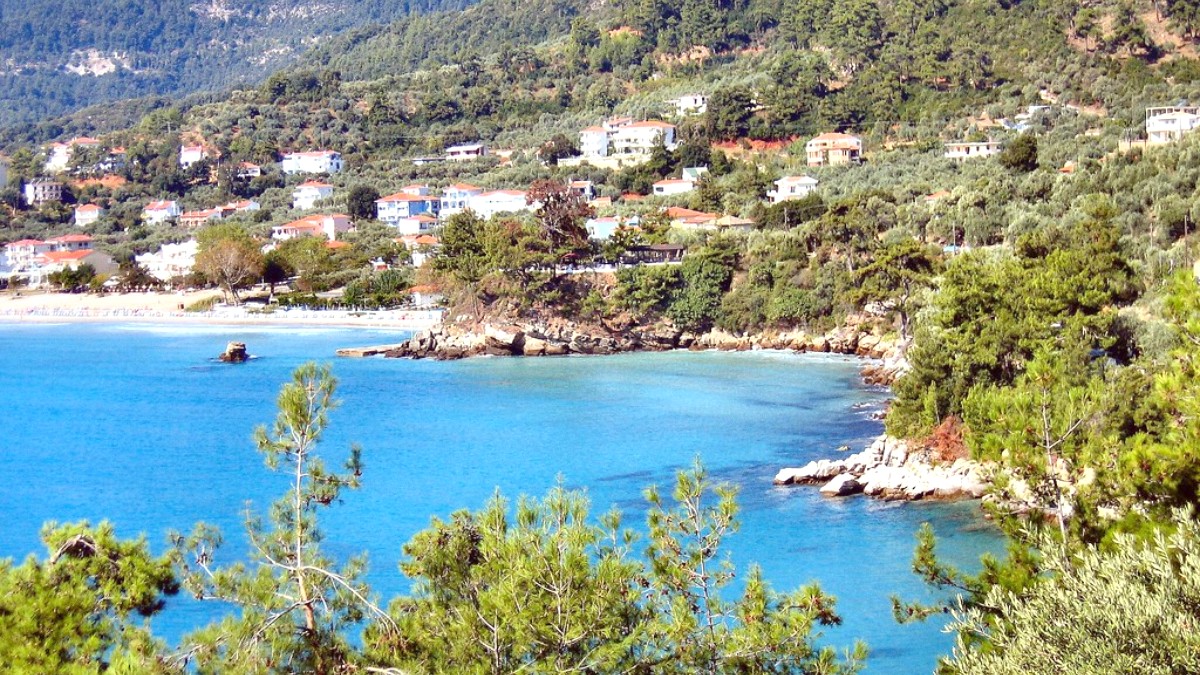
Northern Greece, Greece
The region offers a captivating journey through time, inviting you to trace the footsteps of emperors and discover hidden coves. Here, the Ionian Sea meets the vast, ecologically important Ambracian Gulf, creating a landscape of diverse beauty. From sun-drenched coastlines to verdant hills and significant archaeological sites, Preveza holds adventure. Your trip here brings relaxation by the sea and a deep dive into the historical layers that define this corner of Greece. Embrace the warmth of the Mediterranean climate, the richness of the local cuisine, and the genuine friendliness of the people. This guide will aid in planning a memorable visit, uncovering the best of Preveza for every kind of traveler.
The Ambracian Gulf, locally known as Amvrakikos Kolpos, makes up a living ecosystem of immense value. Its shallow, brackish waters and extensive reed beds create a haven for migratory birds, making it a paradise for birdwatchers. Dolphins and sea turtles also inhabit its waters.
The narrow channel, or "straits," connects the gulf to the Ionian Sea. Preveza city is here, highlighting its historical role as a gateway. This natural bottleneck was a factor in many ancient and modern conflicts, drawing attention to the region's strategic location. Away from the coast, the landscape shifts to olive groves and citrus orchards, reflecting the area's agricultural bounty. These fertile plains eventually meet the lower slopes of the Pindus mountains, bringing a scenic backdrop and rural exploration.
Preveza is a rich and layered history reaching back to antiquity, making it a captivating destination for history enthusiasts. Its story connects with the ancient city of Nicopolis, a monumental settlement founded by Octavian (later Emperor Augustus) in 31 BC. He established Nicopolis to commemorate his decisive victory in the Battle of Actium. This legendary naval engagement, which pitted Octavian's forces against those of Mark Antony and Cleopatra, took place just off the coast of present-day Preveza. The battle marked a turning point in Roman history, solidifying Octavian's power and paving the way for the Roman Empire. Nicopolis flourished as a Roman city, boasting impressive public buildings, a stadium, odeon, baths, and an extensive aqueduct, reflecting its standing as a center of trade and culture.
Throughout the Byzantine Empire, it remained a point of interest, witnessing the ebb and flow of regional power. Later, during the Ottoman rule, Preveza was an important port and military stronghold, enduring multiple sieges and changes in control. The Venetians also sought control of the area, leaving their architectural mark, especially in the city's fortifications. This long history of shifting allegiances and constant contention for its strategic harbor gave Preveza a diverse heritage. You will see this reflected in its archaeological sites, like the vast ruins of Nicopolis, the remnants of various castles (including the Castle of Saint George and Pantokrator Castle), and the distinct architectural styles found within the old town itself.
Octavian's victory marked the end of the Roman Republic and the start of the Roman Empire.
It ushered in a long period of peace, known as the Pax Romana.
Octavian dedicated Nicopolis as a 'City of Victory', ensuring its prominence.
Preveza's narrative includes centuries of Ottoman presence, making it a trade and fishing hub.
The city became part of modern Greece in 1912.
Visitors explore the Roman Stadium and the Odeon, envisioning the grand games and performances that once took place there. The archaeological museum houses many artifacts, bringing a clearer understanding of daily life in this thriving Roman city.
This deep historical backdrop adds depth to your visit, making it possible to connect with centuries of human endeavor and geopolitical significance.
Preveza's historical narrative makes it a compelling choice for exploration.
Preveza combines ancient history, beautiful natural landscapes, and a relaxed coastal town atmosphere. It brings a less crowded and more authentic Greek experience compared to some of the more internationally renowned islands. The region excels in delivering a diverse holiday, whether you seek historical exploration, beach relaxation, or interaction with local wildlife.
This sprawling archaeological park welcomes wandering among the ruins of a Roman city, bringing a profound sense of history.
Preveza has tranquil beaches on the Ionian coast. Monolithi Beach, reputed as Europe's longest sandy beach, offers miles of open space.
Stroll along the waterfront (Paralia), watch the fishing boats, and enjoy fresh seafood at one of the many tavernas.
The Ambracian Gulf represents another significant facet of Preveza. This protected wetland area is a haven for diverse birdlife, including flamingos and pelicans, and also home to sea turtles and dolphins.